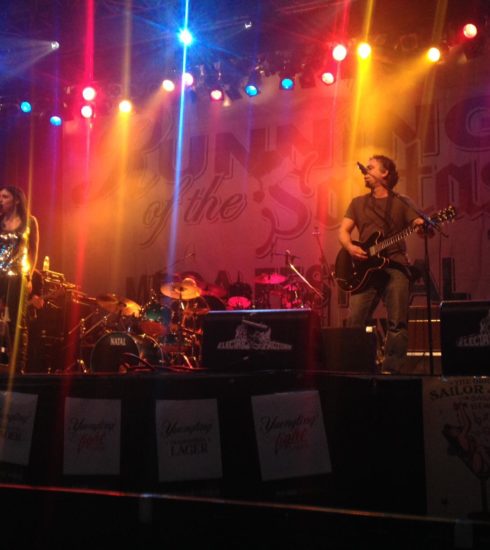Impresario’s “All of Us” (LP)
“Close Encounter,” the opening cut in Impresario’s All of Us, doesn’t waste time with a heady symphonic intro or anything else of the uniquely complex variety as one might assume it would after listening to Songs from Inside, but instead a midrange-heavy beat that could get even the most dedicated of wallflowers onto the dancefloor. The crunch of the groove in the title track has yet to hit us, as has the fluid stream of melodic ribbonry that forms the backbone of “I Don’t Know Where I’m Goin’ to” and a “Cat’s in the Cradle” cover the same; in this first song, all that matters is the connection Valerian Ruminski has with the percussive pulsations in the backdrop – and, more specifically, the thick sexual tension they unwittingly produce.
FACEBOOK: https://www.facebook.com/TwinfishRecords
“Smile” introduces a brooding poeticism into the mixture of material only to pull us away from the vocal-centric style of arranging in favor of blasting “You Got Me” and its fabulously outrageous electronic beats as loudly and proudly as possible. It’s definitely the most flamboyant transition of All of Us, but I’d be lying if I said that it was the only element of avant-garde experimentalism here. “Love is Not a Time Machine” and “Vegaquarian” follow similar routes out of the mainstream and into the dense decadence of a neo-art rock I really want to hear more of in the future, and all things considered, I don’t know what could prevent Ruminski from expanding on their themes a little more thoroughly in the future.
Though “1865” wasn’t the most compelling song to have caught my attention midway through the tracklist, it undeniably exhibits many of the compositional qualities that I would say this artist has come to master better than many of the other players in his class. This tune, along with its neighbor in “Midnight Mode,” plays off of a very surface-level aesthetical concept with the intention of slipping us some very intellectual substance in the form of smart, versatile lyricism, and the contrast between the two components makes for a stylistic cocktail as intoxicating to a critic like myself as moonshine. Is it as simplistically focused as “Monkeys on a Rock” or “Be a Man?” Maybe not, but it’s a heck of a lot more captivating than anything I’ve reviewed in the pop establishment recently.
It wouldn’t be a proper Impresario effort without at least one operatic performance, and “Se Vuol Ballare” gives us just that. “Give Life a Chance” brings us to the conclusion of the record on a rather poppy note, but if the idea was to leave us in a haze of radio-friendly harmonies as a means of testing its own experimental depth, All of Us couldn’t have been given a more evocative ending than this one. Valerian Ruminski might not be the rockstar that his vocal prowess would initially have us believe him capable of becoming in the right circumstances, but if there’s anything that is undebatable on every front, it’s that his is a talent critics tend to come across but once in a generation.
Michael Rand







